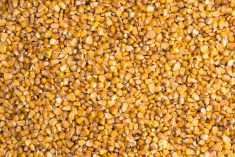CNS Canada — Russian sanctions implemented last week halting food imports from the U.S., Canada and the European Union have jarred Canada’s pork industry, which exports a large amount of product to Russia annually.
“It’s quite a significant impact in terms of the disruption it creates,” said Martin Rice, executive director at the Canadian Pork Council. “So there’s a lot of uncertainty about what is the status of product that is between Canada and the Russian internal market. Product that hasn’t cleared Russian customs is all in question.”
Read Also

U.S. grains: Wheat futures rise on supply snags in top-exporter Russia
U.S. wheat futures closed higher on Thursday on concerns over the limited availability of supplies for export in Russia, analysts said.
However, dealing with issues such as this isn’t a new experience for the Canadian pork industry, he said.
“In the longer run, this is not unprecedented for us to find the Russian market closed or severely constrained to us,” he said. “Every exporter to Russia has to accept that the Russian market is very unreliable. It’s there one day, and then another day it’s not.”
Russia was Canada’s third most important export destination for pork, behind only the U.S. and Japan, with about 13 per cent of Canadian pork being exported to Russia.
While these sanctions weren’t a surprise, Rice said, they are still “absolutely unwelcome.” It’s estimated it will cost millions of dollars to redirect product originally designated for Russia. [Related story]
Canada “is a very strong pork market right now in the world scene because of the reduced supply in the U.S. (and) reduced supply in Japan, both due to PEDv (porcine epidemic diarrhea virus), which has had fortunately very limited incidence in Canada,” said Rice. [Related]
“The conditions are such that we are looking at alternative markets at this time.”
The pork that was designated for Russian export was frozen product, which Rice said lends flexibility in terms of finding an alternative market, compared to fresh product.
“It’s going to have an impact on the bottom line of our exporters,” said Rice. “And just to have one more reason, many people will wonder if that’s a market they really should be committed to.”
This year North American pork prices have been at a record high due to PEDv hitting hard in the U.S. and seeping into Canada. Rice said the Russian sanctions may cause pork prices to decrease, but not by a significant amount.
“Russia has already stopped importing largely from the EU and the U.S. due to other trade reasons in the past,” Rice said. “So what it does is it displaces or can displace a significant amount, but in the world context it’s a relatively small amount of product.
“I think the impact on prices is probably going to be in the two to three per cent area at most and it could be temporary, as we find these alternative markets to export to.”
— Marney Blunt writes for Commodity News Service Canada, a Winnipeg company specializing in grain and commodity market reporting.




















